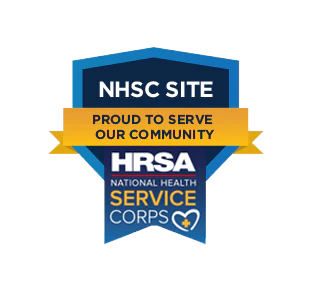FAQ
Frequently Asked Questions
What is Therapy?
Therapy is an opportunity to discuss/talk about issues that are important to the client, while having a trained objective person (Therapist) help work through not only the current situation but in dealing with similar situations in the future. Therapy can be about one specific problem, or it can be about multiple. Something to mention, is that therapy is a collaborative event, it requires an active role from both the client at the therapist for change to occur..
How can therapy help me?
There are too many benefits of participating in therapy to list! Therapists can provide support, problem solving skills and coping strategies for a wide range of issues. Therapists, being objective, can provide a different or a fresh perspective on a problem that you have been struggling with. Benefits of therapy depend on your commitment and level of readiness. Some benefits can include, boosting self confidence or improving self esteem, improving communication skills, learning/finding new coping skills, attaining a better understanding of yourself, changing old patterns and developing new ones, or managing your emotional feeling such as sadness, anger or other highly charged emotions you may be feeling..
What may happen in the first session
The initial session will be an initial assessment to discuss the client’s history and needs for treatment. During this first session the client will have the opportunity to see how therapy will work, review office policies, privacy and confidentiality, as well as determine whether or not they are comfortable with the therapist. Side note: It’s vital to have a positive working relationship with your therapist, so it’s recommended that the client and therapist will meet 2-3 times before deciding whether or not the relationship will continue. The therapist will provide client with referrals of specialists or trusted colleagues if they feel someone else might better be able to work with the client..
Why do people attend Therapy sessions / Why is Counseling beneficial?
People see a therapist for a wide range of reasons including but not limited to stress management to a specific diagnosis. Sometimes an event occurs that causes an individual to seek out help, while for others, they may attend therapy because it provides a trained objective person to help them work through some issues they may have been struggling with for years. Counseling can be beneficial because a client may feel a sense of control in their life and have the tools to be able to make better decisions or changes in their life.
How do Therapists work with other professionals?
In order to preserve the continuity of care, it’s important to work with school counselors, pediatricians, primary care physicians, psychiatrists, etc. With written permission, therapists can provide treatment plans or answer questions that other professionals may have. If a client needs their therapist to work with other professionals in their life, please don’t hesitate to ask.
Will My Psychiatrist Push Medication on Me?
At Mosaic Therapy, we empower patients to make their own decisions about their health. Our providers will not shame you into taking medication that you don’t want to take. Instead, they inform you about all of your care options, including benefits and risks. Then you make the decision.
Psychiatry vs. Psychology
Psychiatrists are trained medical doctors and can prescribe medications. They spend much of their time with patients on medication management as a course of treatment.
Psychologists focus extensively on psychotherapy and treating emotional and mental suffering in patients with behavioral intervention.
Psychiatrists often recommend to pair medication management along with cognitive behavioral therapy to create a more holistic treatment plan.
What is Psychiatry?
Psychiatry is a field of medicine in which providers use medication to treat mental and behavioral health disorders when needed. Psychiatric care providers are licensed medical professionals. Patients either see a medical doctor, an advanced nurse practitioner, or a physician assistant.
What Kinds of Medications Are Prescribed?
If you and your provider determine that medication should be part of your treatment plan, your provider will walk through your medication options with you. Depending on your needs, the provider may prescribe medications such as antidepressants, anti-anxiety medications, stimulants, or mood stabilizers.
What If My Medications Don’t Work or Cause Side Effects?
At Mosaic Therapy, we recommend ongoing medication management to ensure that medications work well for our patients. It’s important to attend these follow-up appointments or reschedule them as needed. During medication management appointments, your provider will ask about your symptoms, any side effects, and how you feel about your medication.
If you have serious or severe side effects, you can contact your provider before your follow-up appointment. They will give you directions on how to wean yourself off the medication if needed. If you have a life-threatening reaction to the medication, seek emergency medical attention.
What Does a Child Psychiatrist Do?
A child psychiatrist is a doctor who specializes in diagnosing and treating behavioral disorders in children up until the age of 18. This kind of psychiatrist uses their knowledge, training, and experience to offer treatment solutions, including medication, that will best help a child or adolescent with their unique challenges. Child psychiatrists take many factors into consideration including biological and psychological influences to help kids and their families cope with interpersonal relationships, stress, and crises.
Child Psychiatrists vs Child Psychologists
The difference between a Child Psychiatrist and a Child Psychologist. Child psychiatrists and child psychologists both diagnose and treat mental health disorders in children and adolescents. The primary difference between the two is that psychiatrists tend to focus on medication management, while psychologists tend to focus more on talk therapy.
When to See a Child Psychiatrist vs a Child Psychologist
A psychologist can help a child to work through difficult situations, learn coping skills to manage strong feelings like anxiety and depression, and help families to communicate and get along better. What a psychologist cannot do is prescribe medication. Most child psychiatrists see children to establish and manage the medication portion of their treatment. Usually, a child will need to see a psychologist for weekly therapy in addition to their visits with a psychiatrist.
Your child might benefit from seeing a psychiatrist if:
- They have been in therapy for a while and are still struggling to manage their symptoms.
- You aren’t sure if medication is right for your child, and you’d like to talk about your options with someone knowledgeable.
- Your child’s pediatrician, therapist, or another professional in their life has suggested that medication might be helpful.
- You need someone to help you find the right medication and dosage for your child, and keep an eye on any side effects.
How to Find a Child Psychiatrist
The number of child and adolescent psychiatrists available in the US is relatively low, so it can sometimes be a challenge to find one located in your area. One in five children in the US live in a county without a child psychiatrist. That’s why online therapy has become so important to children and parents in need of these services. Online therapy makes child psychiatrists more available and accessible, and also gives parents the opportunity to find the right child psychiatrist for their particular needs and challenges.
How to Find a Child Psychiatrist
Child and adolescent psychiatry can help children and their families to manage a broad range of situations and conditions including:
- Depression
- Early-onset Psychosis
- The Death of a Loved One
- Anxiety Disorders
- Eating Disorders
- Moving/Starting at a New School
- Bullying
- Parental Separation or Divorce
- Self-Harming
- Schizophrenia
- Bipolar Disorder
- Oppositional Defiant Disorder (ODD)
- Obsessive-Compulsive Disorder (OCD)
- Attention-Deficit/Hyperactivity Disorder (ADHD)
- Post-traumatic stress disorder (PTSD)
- Trauma or Stress-Related Disorders
- Tourette Syndrome
- Autism Spectrum Disorders
- Drug and Alcohol Issues
What is the difference between seeing a therapist, a psychologist and a psychiatrist?
As mental health therapists / counselors the scope of treatment is talk-therapy. Typically therapists have their masters degree, and yearly cont. education. While, psychologists also provide counseling services they also provide psychological testing for schools, courts and other entities. Psychiatrists tend to limit their talk therapy / counseling services and are typically available for medication management. If your therapist feels that you may need medication, they will provide you with a referral to doctors that they may recommend. A psychiatrist is a medical doctor that specialists in behavior. If medication is necessary, typically in these clients, medication and talk therapy are used together. Medication therapy is not a replacement for talk therapy.



